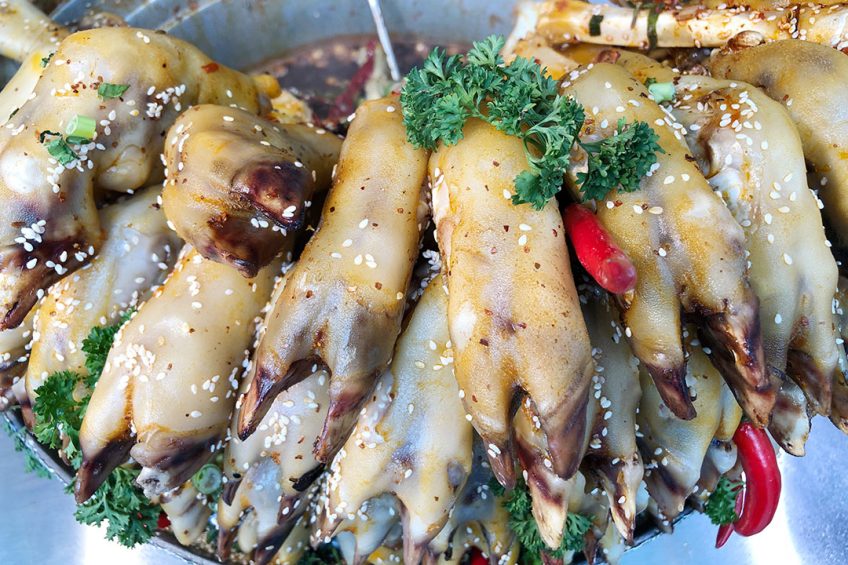China approves 7 more Brazilian pig slaughterhouses

China has approved 7 more Brazilian pork meatpackers to start exporting to China. All of them are in Santa Catarina state, representing 1/3 of Brazil’s pig production. In addition, the state has the highest Foot-and-Mouth Disease (FMD) status, i.e. free without vaccination.
All these meatpackers are allowed to sell 6 types of pig by-products to China, including trotters, tongues, snouts, cheeks, ears and tails.
Pork exports and government visits
The agreement is related to the recent visit of president’s Jair Bolsonaro’s to Asia, in October. Brazil’s agricultural minister Tereza Cristina visited Beijing between 18-25 October, wrapping up the conversations with the Chinese authorities.
On Twitter, minister Cristina commented, “Exports can start immediately. This openness will move Santa Catarina’s economy and generate increased income for farmers.”
Bom dia! Começando a semana com uma ótima notícia. A China acaba de habilitar sete plantas de Santa Catarina para exportação de miúdos suínos. A habilitação é resultado das tratativas realizadas durante viagem do presidente @Jairbolsonaro ao país asiático no fim de outubro.
— Tereza Cristina (@TerezaCrisMS) November 4, 2019
Pork exports can yield US$ 2billion
The Department of Commerce and International Relations of the Ministry of Agriculture, Livestock and Supply (MAPA) estimated this opening can generate US$ 2billion during 2020.
The enabled plants are all in Santa Catarina. Among them are:
- Brasil Foods (Campos Novos);
- Pamplona Alimentos (Presidente Getúlio and Rio do Sul);
- Aurora Cooperative (Joaçaba and Chapecó); and
- Seara (São Miguel do Oeste and Itapiranga).
Animal production sector is celebrating
Francisco Turra, president of the Brazilian Association of Animal Protein (ABPA), said the animal production sector is celebrating this news. The ‘conquest’ is attributed to government efforts.
He said, “The minister has achieved several successes in order to expand Brazilian participation in China’s animal protein market. There is great optimism about these new qualifications. By-products segment can boost farmers income from this market.”
Read also: Brazil grabs pork export momentum due to AS
China is the main destination for Brazil’s pig exports. Between January and September this year, China imported 156,600 tonnes of pig meat from Brazil. That volume was 34% higher compared to the same period last year.
The amounts is represents 29.8% of the total of 524,000 tonnes exported during that period. Altogether, the by-products together amounts 50,200 tonnes.











